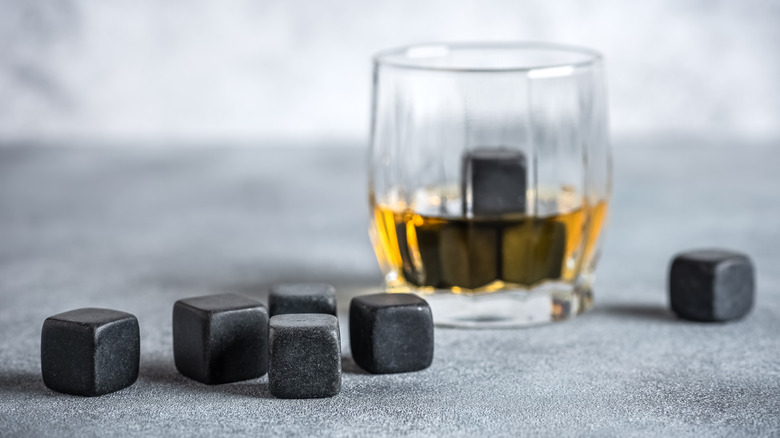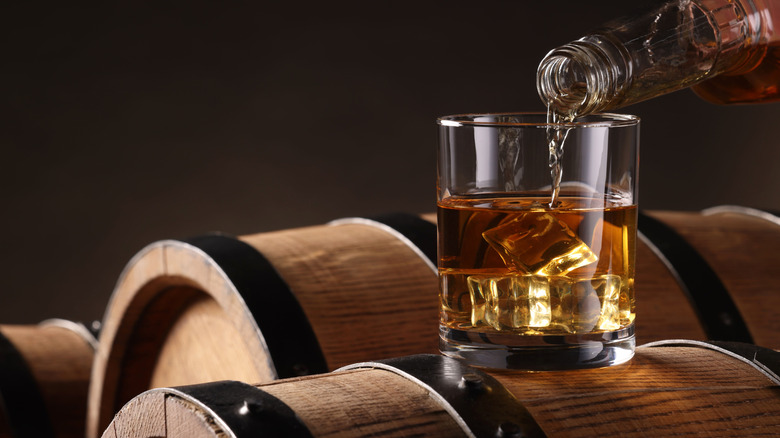The Hidden Downside Of Whiskey Stones You Should Keep In Mind
Whiskey is often at its best when slightly cooled. Not only can a cool sip of whiskey burn less than one at room temperature, but sometimes certain whiskey flavors can be masked by the heat but come out when cooled, such as apple. However, cooling the whiskey with ice comes at a cost: dilution. As the ice melts, it adds water to the drink, diluting both the flavor and aroma imbued in the whiskey. Whiskey stones, small stones that can be cooled in the freezer and dropped into a glass of whiskey, were developed to combat this. They cool your spirit without adding any water, preventing dilution. However, they do have one downside: their temperature.
While ice immediately cools your whiskey, whiskey stones take a bit longer to work and don't cool it down by nearly as much. According to ROCKS, a whiskey stone company, ice cubes tend to cool your drink down by more than 20 degrees Fahrenheit, while whiskey stones, even when used properly, only cool it by 6–10 degrees. This means that if you're aiming to have a nice, cold glass of whiskey, stones might not be your best bet. They only chill the drink slightly and won't get it nearly as cold as an ice-cube would.
When to use ice cubes vs whiskey stones
The fact that whiskey stones don't cool off the whiskey as much doesn't mean they're not a viable option; it simply means that whiskey stones and ice cubes are best suited to different kinds of spirits. Whiskey stones are best paired with higher-end whiskeys that you don't want to alter the flavor of, but simply want to make colder. For instance, if you've got an exceptionally smooth whiskey, you don't want to risk losing the flavor just to make the drink colder. This is what whiskey stones are perfect for. Also note that different types of stones will offer different degrees of cooling; for the coldest results, try metal stones.
On the other hand, ice cubes are preferred for cheaper spirits with an unpleasant burn. In this case, the dilution becomes a boon rather than a bane, as the spirit becomes less harsh the more water dilutes into it. While you still don't want your whiskey to end up too watery (which is why you should always use the right shape of ice cube), a bit of water mixing into a cheaper whiskey can be a good thing, especially if there's less nuance in the taste to be lost — after all, adding water is our first suggestion when trying to make a cheap whiskey taste better.

